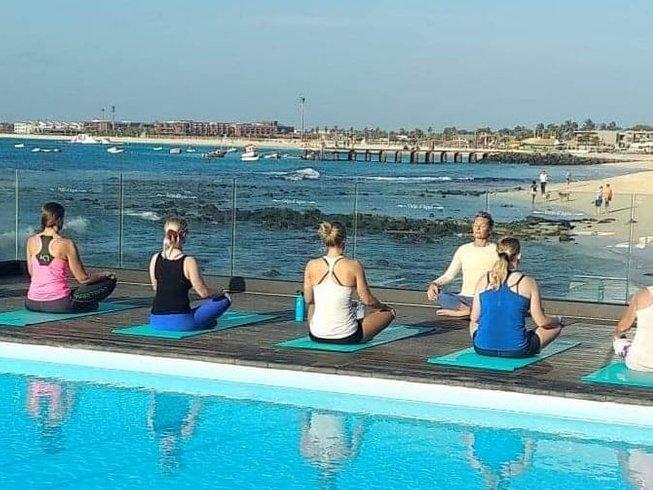Search for yoga retreats
Discover yoga retreats, holidays, and courses from worldwide.
The renowned yoga teacher Sri Tirumalai Krishnamacharya once said, "Teach what is appropriate for an individual." This wisdom applies not only to instructors but also to students. Finding the "appropriate" yoga practice requires a thoughtful exploration of yoga science and dedicated practice over time. Understanding which postures are beneficial for various conditions, from back pain to high blood pressure, is just one of the many challenges yoga practitioners face.
Before embarking on this journey, it's crucial for both beginners and experienced practitioners to delve into the essential elements of a yoga practice. These elements unlock the intuitive and hidden aspects of yoga, leading to a deeper experience and minimizing the risk of injuries.
1. Finding Your “Why”

The first step is to identify your personal reasons for practicing yoga. Are you seeking a sculpted physique, following a doctor's recommendation, or pursuing a path of greater spirituality and balance?
Focusing solely on aesthetics can hinder progress. Remember, yoga is not about achieving a specific look; it's about understanding your body's limitations and working within them (function over form). While a toned physique might be a desirable side effect, it shouldn't be the sole driving force.
2. Addressing Individual Needs

If you have any existing health conditions, it's vital to choose postures and sequences that are safe and appropriate for you. Not all poses are suitable for everyone, especially those with injuries. For instance, individuals with lower back issues should avoid postures like boat pose, plough pose, and forward bends, as they can exacerbate pain.
Approaching yoga with awareness of your limitations is crucial. A posture that benefits one person could be harmful to another. Often, the same posture can be healing when practiced correctly but damaging when done with improper technique. Unfortunately, this perspective is often overlooked in mainstream media portrayals of yoga. Beginners often dive into practice without considering their limitations or how to overcome them through tailored methods. This lack of knowledge can lead to imbalances and contribute to the negative portrayal of yoga in some media outlets.
3. The Journey Within

The pursuit of spirituality can be a powerful motivator for yoga practice. However, actively "searching" for it can create a disconnect. Spirituality exists both within and around us. If it resides within, then the journey begins with introspection. Through meditation, we can delve deeper into the layers of our being, uncovering the root causes of our thoughts and emotions.
Yoga teaches that true spiritual growth often requires fulfilling our responsibilities and commitments before reaching a state of complete enlightenment. During this early stage of life, yoga acts as a tool for balance and maintenance.
4. Embracing Habitual Practice
Ultimately, the most sustainable approach is to practice yoga without overthinking. Let it become a natural part of your routine, like eating or sleeping. This ingrained practice allows yoga to unfold organically and effortlessly, leading to a meditative and safe experience. Whether you are considering a yoga retreat or embarking on yoga teacher training, integrating these elements into your practice will set a solid foundation. Remember, yoga is not just about physical postures; it's a comprehensive practice that nurtures the mind, body, and spirit. By understanding and applying these principles, you can enhance your yoga journey and experience the transformative power of this ancient practice.
By understanding these key elements, you can embark on a personalized and fulfilling yoga journey. Whether you're seeking a deeper connection to your body, mind, or spirit, yoga offers a transformative path for anyone willing to explore its hidden depths.
Craving More Stories?
Join our ShopYogaRetreats newsletter for the latest updates on thrilling
destinations and inspirational tales, delivered straight to your inbox!
We value your privacy. Your email address will never be shared or published.
 English
English Deutsch
Deutsch Français
Français Nederlands
Nederlands Español
Español

